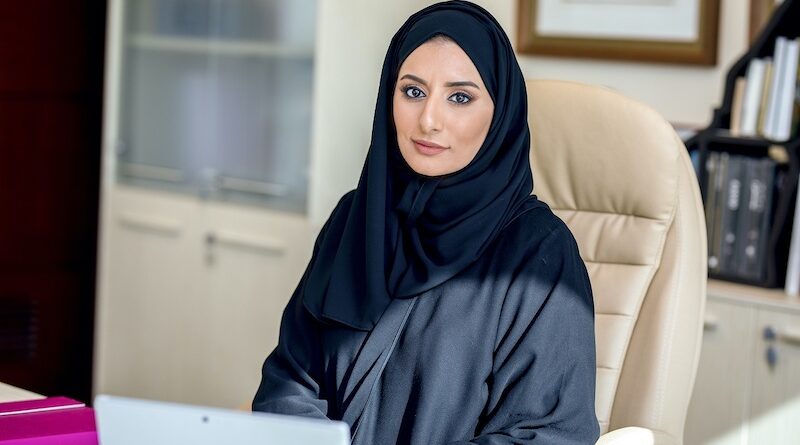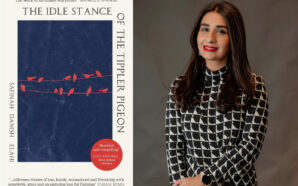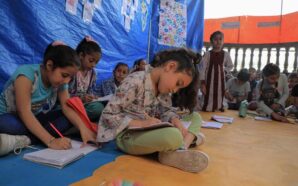October 12th, 2020, Sharjah (UAE): Female leaders in gender advocacy and women empowerment from the Middle East have met on the sidelines of the UN General Assembly to reflect on how girls’ education and economic empowerment in the region have been impacted by the Covid-19 pandemic, and talk about their unique experiences in trying to overcome current challenges to protect the forward momentum of gender equity in the Middle East.
The high-level private roundtable was co-hosted by Save the Children and NAMA Women Advancement Establishment (NAMA), a UAE-based organisation founded on the vision of an equitable world for women, chaired by Her Highness Sheikha Jawaher bint Mohammed Al Qasimi, wife of His Highness Sheikh Dr. Sultan bin Muhammad Al Qasimi, Ruler of Sharjah, UAE. The virtual meeting looked at possible ways to improve opportunities for women and girls in the region.
The meeting, held against the backdrop of the global Covid-19 pandemic, and the imperilling of
hard-won progress for girls, coincided with the 25th anniversary of the Beijing Declaration and Platform for Action for Women – a historic moment when the world came together to define gender equality.
The discussions were held by female leaders from different fields and focused on best practices around girls’ education, economic empowerment and girls’ rights in the region.
The Covid-19 crisis means girls are more likely to lose access to health services, suffer poverty, food insecurity, and lose access to education while being exposed to violence. Estimates suggest that 130 million more people could be left without enough food in 2020 as a result of the pandemic.[1] In many households, girls will be more likely to go without the food they need than men and boys.[2]
One hundred and thirty million girls were already out of school before the pandemic hit. At the peak of the crisis, 91% of learners had their schools and colleges closed. Experience shows that girls are much less likely to return once they are taken out of school.[3] Girls are also more likely to take on caring responsibilities for siblings who need home-schooling and for family members who fall sick or are working outside the home, therefore missing out on their education.
Sayyeda Salam – Director of Partnerships and Philanthropy fromSave the Children “Since Save the Children was created by two empowered women a century ago, we’ve been fighting for children’s rights, with gender equality at the centre of this agenda. We’ve made huge progress in the last 25 years, but this is threatened by the consequences of Covid-19 and the greater inequalities that will result. We’re thrilled come together with NAMA and this incredible group of female leaders from all over the world to discuss these challenges, and how we can work together to address them.”
Speaking at the roundtable, Her Excellency Reem BinKaram, Director, NAMA, said: “The pandemic, like any other crisis, has left a disproportionate impact on women, and we need to act fast and decisively to get gender equity and girls’ futures back on track.”
Stating that despite female empowerment and gender equity gathering momentum in the Middle East and North Africa region, BinKaram noted that the roundtable’s discussions held great importance as the realities presented a mixed picture. She continued: “On the one hand, we see that gender gaps are closing in on education and health, and on the other, this progress isn’t necessarily reflecting on their economic participation due to multilayered barriers which are at play.”
Among the topics speakers explored were the advances made and the current persistent challenges of gender equality; the importance of girls’ education to their empowerment and economic independence; girls’ economic and leadership empowerment; the importance of parents- particularly fathers and spouses- as well as leaders who could act as a catalyst to women’s advancement. All these, as well as governments, have a role to play in advancing gender equality.
The speakers also shared their personal stories of overcoming structural and cultural barriers to reach the top of their industry, and how those learnings could translate to programming for the most marginalised girls in the region.
Her Excellency Reem BinKaram, further noted: “I am confident that girls will match the challenges we face. The youth are shaping their own future. Our role today is to listen, to encourage, and support them. We know an empowered girl is, by default, an empowered woman.”=
Clare Woodcraft, Executive Director, Centre for Strategic Philanthropy said:” I am so impressed with the power of female Arab talent. I noticed that the women on this call all sit on boards, they are all successful professionals, they all mentor other women. This should be our call to action. We need to get women into decision making positions. We need to work together on strategic projects to make a real difference for women.”
The speakers included: HRH Princess Lamia Al Saud, Secretary General, Al Waleed Philanthropies; HE Sara Falaknaz, Federal National Council Member; HE Dr. Nawal Al-Hosany, UAE’s Permanent Representative, The International Renewable Energy Agency (IRENA); HE Sheikha Hind bint Majid Al Qassimi, Chairperson, Sharjah Business Women Council; HE Reem BinKaram, Director, NAMA Women Advancement Establishment; Sayyeda Salam, Director, Save the Children UK; Catherine Oppenheimer, Founding Member, Save the Children US Women’s Network; Clare Woodcraft, Executive Director, Centre for Strategic Philanthropy; Diala Khamra, CEO, Save the Children Jordan; Diana Hamade, Founder, Diana Hamade Attorney at Law; Dr. Hayat Al Sindi, Vice President, Islamic Development Bank; Heba Al Emara, Managing Director, VISTRAIbukun Awosika, Chairwoman, First Bank of Nigeria; Dr. Lamya Fawwaz, Executive Director of Brand & Strategic Initiatives, Masdar; Margaret McGetrick, Founding Member, Save the Children US Women’s Network; Natasha Kaplinsky, Founding Member, Save the Children UK Women’s Network; Saba Al Mubaslat, CEO, Asfari Foundation; Sara Al Muhaidib, CEO, Al Muhaidib Foundation.
[1] Global Network Against Food Crises and Food Security Inclusion Network (2020) 2020 Global Report on Food Crises: Joint Analysis for better decisions.
[2] World Food Program (2020) The power of gender equality for food security: Closing another gender data gap with a new quantitative measure.
[3] Save the Children (2020) Save our Education: Protect every child’s right to learn in the COVID-19 response and recovery.











